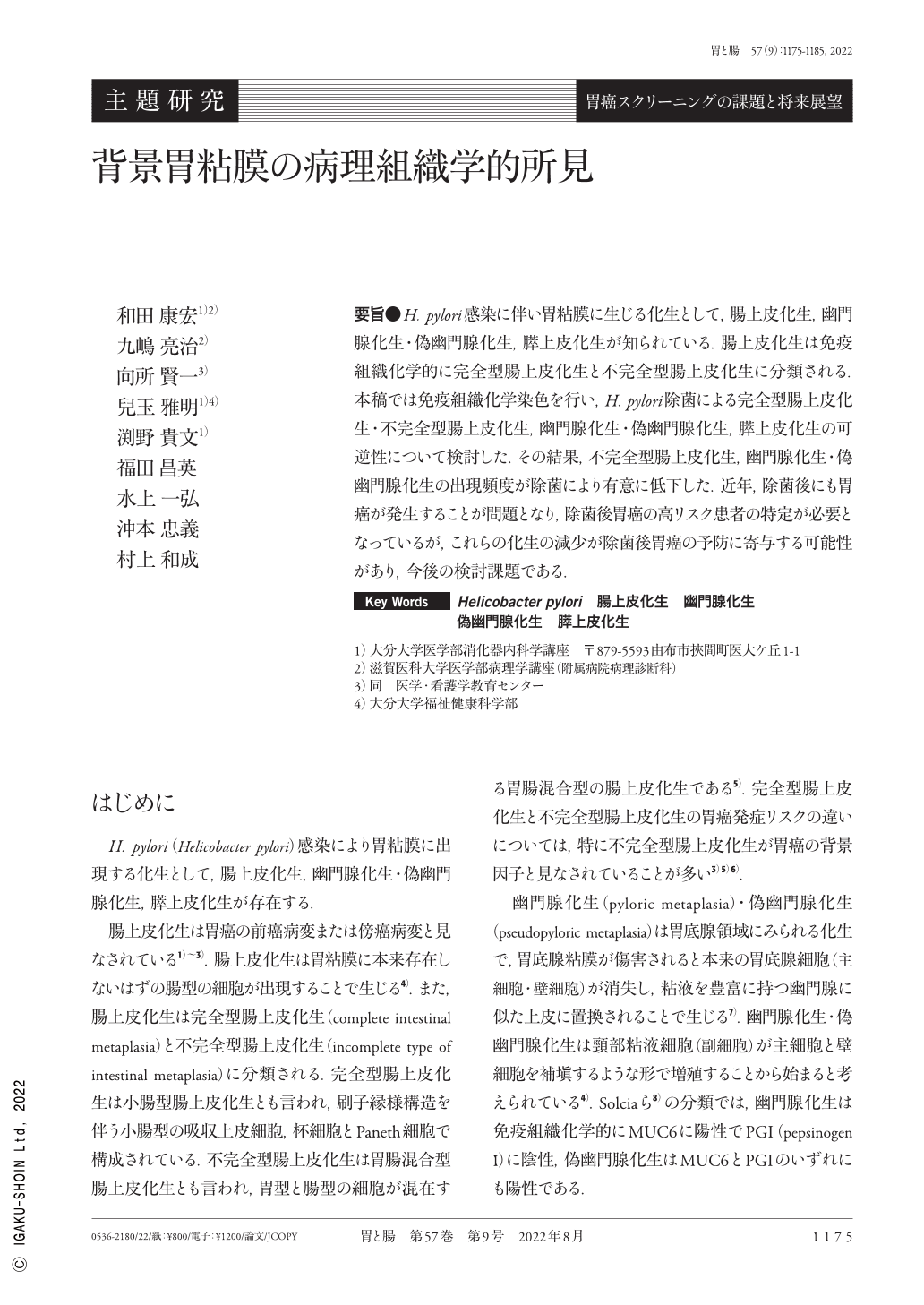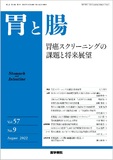Japanese
English
- 有料閲覧
- Abstract 文献概要
- 1ページ目 Look Inside
- 参考文献 Reference
要旨●H. pylori感染に伴い胃粘膜に生じる化生として,腸上皮化生,幽門腺化生・偽幽門腺化生,膵上皮化生が知られている.腸上皮化生は免疫組織化学的に完全型腸上皮化生と不完全型腸上皮化生に分類される.本稿では免疫組織化学染色を行い,H. pylori除菌による完全型腸上皮化生・不完全型腸上皮化生,幽門腺化生・偽幽門腺化生,膵上皮化生の可逆性について検討した.その結果,不完全型腸上皮化生,幽門腺化生・偽幽門腺化生の出現頻度が除菌により有意に低下した.近年,除菌後にも胃癌が発生することが問題となり,除菌後胃癌の高リスク患者の特定が必要となっているが,これらの化生の減少が除菌後胃癌の予防に寄与する可能性があり,今後の検討課題である.
Metaplastic changes, including intestinal metaplasia, pyloric metaplasia, pseudopyloric metaplasia, and pancreatic acinar cell metaplasia, occur in response to chronic gastritis caused by H. pylori(Helicobacter pylori)infection. Intestinal metaplasia is immunohistochemically classified as complete or incomplete. In the present study, we examined the reversibility of complete and incomplete types of intestinal, pyloric, pseudopyloric, and pancreatic acinar cell metaplasia after H. pylori eradication using biopsy specimen immunohistochemistry. We found that incomplete intestinal, pyloric, and pseudopyloric metaplasia regressed after H. pylori eradication. The identification of patients at high risk for gastric cancer is needed because gastric cancer develops even after H. pylori eradication. Further study is needed to determine if the regression of incomplete intestinal, pyloric, and pseudopyloric metaplasia contributes to the prevention of gastric cancer after H. pylori eradication.

Copyright © 2022, Igaku-Shoin Ltd. All rights reserved.


